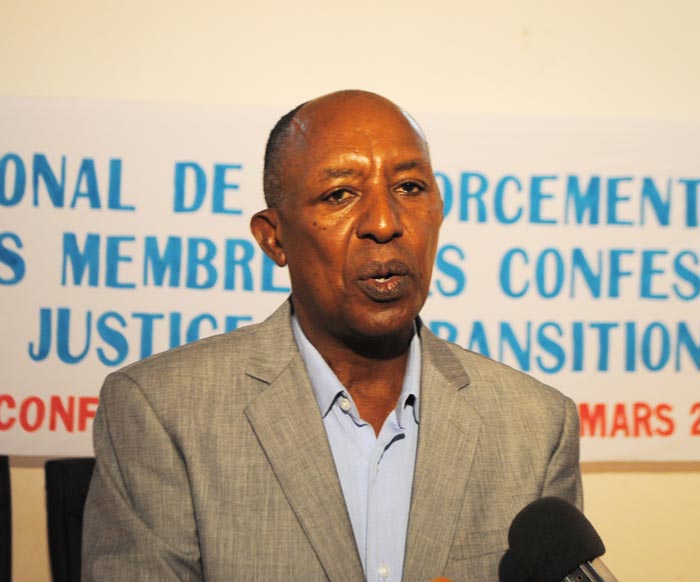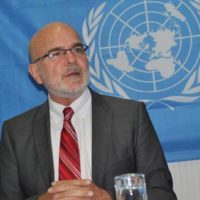In its series of workshops, Burundi Office of the United Nations (BNUB) has organized a two-day workshop to religious confessions from this 19th to 20 March 2014.- By Diane Uwimana

According to Isidore Hakizimana, Chairman of Burundi Inter-Confessional Council, consolidation and peacebuilding concern everyone.©Iwacu
“Our country has known a decade of war and there are still many challenges we must tackle appropriately in order to live peacefully”, says Saidi Abdallah Kajandi, Legal Representative of COMIBU (Burundi Muslim Community) and Deputy President of Burundi Inter- confessional Council. He indicates that religious confessions are called upon to teach and preach obedience to people: “we must consolidate and build our peace. While our sheep are learning from our teachings, they will learn how to obey each other. Then, they will respect the law and rights through Transitional Justice Mechanisms’ teachings”, adds Kajandi. Isidore Hakizimana, Chairman of Burundi Inter-confessional Council has the same view as the Legal Representative of COMIBU. “This workshop comes at a good time. By strengthening and deepening our capacity, Transitional Justice Mechanisms will certainly reach the local people and administration. We are always in contact with them,” underlines Hakizimana. He goes on saying that consolidation and peacebuilding concern everyone. Furthermore, it is a must to know the importance of the Transitional Justice Mechanisms.
“Familiarization and popularization of Transitional Justice Mechanisms”
“We would like to enlarge the group that will have a big role to play in the Transitional Justice”, says Robert Kotchani, Chief Transitional Justice Unit of Burundi Office of United Nations during a two-day workshop organized from 19th to 20 March. The overall objective of the proposed activity is to ensure an increased participation and quality of different components of the religious confessions, including women in consolidating the process of Transitional Justice in Burundi.
Moreover, Robert Kotchani notes that this activity seeks to build capacity for their active and effective involvement in the process of national reconciliation. “The role played by religious confessions is very important to promote the national reconciliation and encourage faiths for undertaking and multiplying initiatives which involve communities including women, local and traditional structures in the process of national reconciliation”, points out Kotchani. Then, this workshop will allow religious confessions to ensure social mobilization around the requirement of the establishment of the Truth and Reconciliation Commission. That mobilization will make it operational with international standards and National Consultation results. It is worth indicating that the National Consultations Survey conducted in 2010 has considered a sample of 1964 men and 1923 women. The latter demanded that the Truth and Reconciliation Commission include religious confessions, liberal professions, the government, civil society, Burundians and foreigners chosen for their personal qualities















 IWACU Open Data
IWACU Open Data

